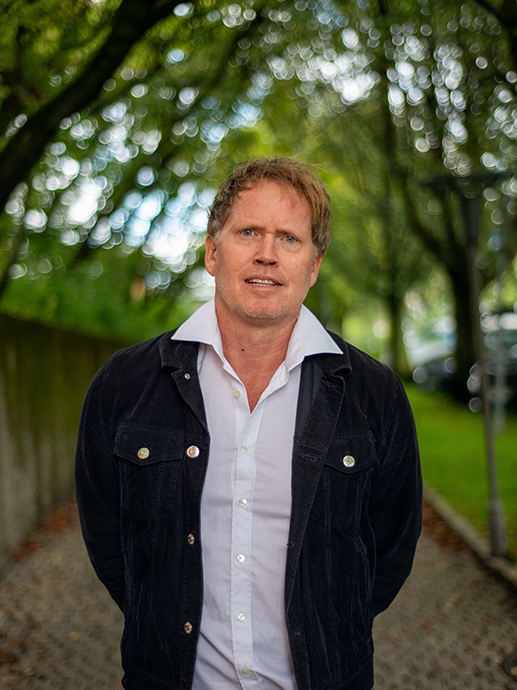This article is translated from Norwegian to English by UiOGPT
At its worst, only one out of five master's students submitted on time at the Department of Social Anthropology (SAI). This was partly due to difficulties in conducting fieldwork during the coronavirus pandemic. However, since hitting a low point, the department has taken action. After three years of targeted efforts, SAI can now boast three times the completion rate at the master's level and lower dropout rates in the bachelor's program.
Head of department Thorgeir Kolshus believes the positive trend has to do with how SAI engages with the students and takes seriously what being a student actually consists of.
"We can quite simply use anthropology to view becoming a student more like a rite of passage. We must recognize and mark that the start of the student life is a significant moment, and that the start of each semester is also a special occasion," he says.
"This involves people who choose to dedicate years of their lives to study what we know best. If you do not approach this with humility, then you have essentially misunderstood your role," he says.

Chaos inside everyone
Kolshus explains that, among other things, SAI continuously works on improving the content for the first days at Blindern [the main campus of the University of Oslo].
"Most first-time students try to look cool and relaxed, but inside, they're boiling," he says.
Therefore, SAI has started to openly discuss that the start of studies is an exceptional state for everyone.
"I believe the chaos that each individual experiences falls more into place when they realize that everyone else is experiencing the same thing right there and then, and that we who now stand to receive them went through the same thing. At the same time, we take care to take about the expectations we have of the students and the expectations they should have of us," he says.
"We have also included lectures from the student health services about the significance of being there for others, for example, that someone notices when you are not there."
The second semester is critical
SAI is in the process of revising its bachelor's program in social anthropology. Kolshus brings to this process the insight that dropout most often occurs in the second semester when the initial excitement has settled, and the reality of student life is ahead.
"During the second semester, many encounter the big hurdle. If they get over it, they will be ready to endure a series of lectures that may not be optimal. Because they know there are other things there that will surprise and excite them. There is more to come. But we have to help them over the hurdle first," says Kolshus.
Therefore, SAI has conducted a thorough review of the range of subjects available, in addition to thinking about universal design from a broader diversity perspective. Kolshus points out that as much as twenty-five percent of the student body may have challenges related to hearing, vision, mental health, and digestion, for example.
"We want to ensure that as many needs as possible are met, without people having to ask for it. These are large groups with quite diverse needs. We are not setting the bar for accommodation at the lowest possible legal level. We should aim higher," says Kolshus.
He believes accommodation is important for people to feel seen, respected, and wanted.
"Anyone who has worked with people who have, for example, hearing challenges knows that eventually, they no longer bother to ask. Most of us are proud. We do not want to be a burden. We just want to be there as a completely ordinary student and be met with the starting point that we have."
A culture for completion
At the master's level, Kolshus wants to highlight two specific changes that he believes have had an effect and will continue to influence tomorrow's completion rates at the institute.
"An unsettling narrative had established itself among us. That writing a master's thesis is hopelessly difficult. Already in the first semester, our students began to plan for deferring their submission. That's when you're on the wrong track," he says.
Kolshus thinks it has been crucial for students to be told that submitting on time is indeed possible and, no matter what happens, the advisor and student shall carry out the plan, together.
"We ensure that the advisor outlines a clear plan for submission from the start. The plan should involve regular meetings every month. And then the student should submit something. Whether it's one page or 40 pages. That's not the most important thing. The important thing is that the plan is there, and that we follow that plan," he says.
The very structure of the master's program is also undergoing change, which, among other things, means that fieldwork is scheduled earlier in the program.
"Previously, fieldwork took place over the summer holidays after the first year, which disrupted some students, for example, those who needed to work over the summer to finance the rest of the year. From next year, fieldwork will be from December to June in the second semester," says Kolshus.
"I think it will now be even easier for our master's students to finish on time."
The head of department believes it is a situation where everyone wins.
"A high completion rate is really good for the students because they enter a culture where finishing on time is normal. Submitting on time looks good on the CV, and students avoid increased loans. Besides, it's very good for the department. With the new funding model, on-time completion will be even more significant," says Kolshus.
"And then the numbers will have a positive impact on the 'Study Barometer' and the major international rankings where completion is an important factor."
